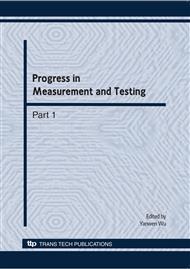p.190
p.195
p.201
p.207
p.211
p.216
p.222
p.228
p.234
Research on Information Resources Management System Based on Domain Ontology
Abstract:
The domain ontology introduces a new theory and method into information resources management. This paper firstly analyzes the existing circumstances and questions of information resources management; then it discusses the relationship between the domain ontology and the information resources management and the former can have tremendous impact on the latter; finally it puts forward the domain ontology-based information resources management system architecture.
Info:
Periodical:
Pages:
211-215
Citation:
Online since:
May 2010
Authors:
Price:
Сopyright:
© 2010 Trans Tech Publications Ltd. All Rights Reserved
Share:
Citation:


